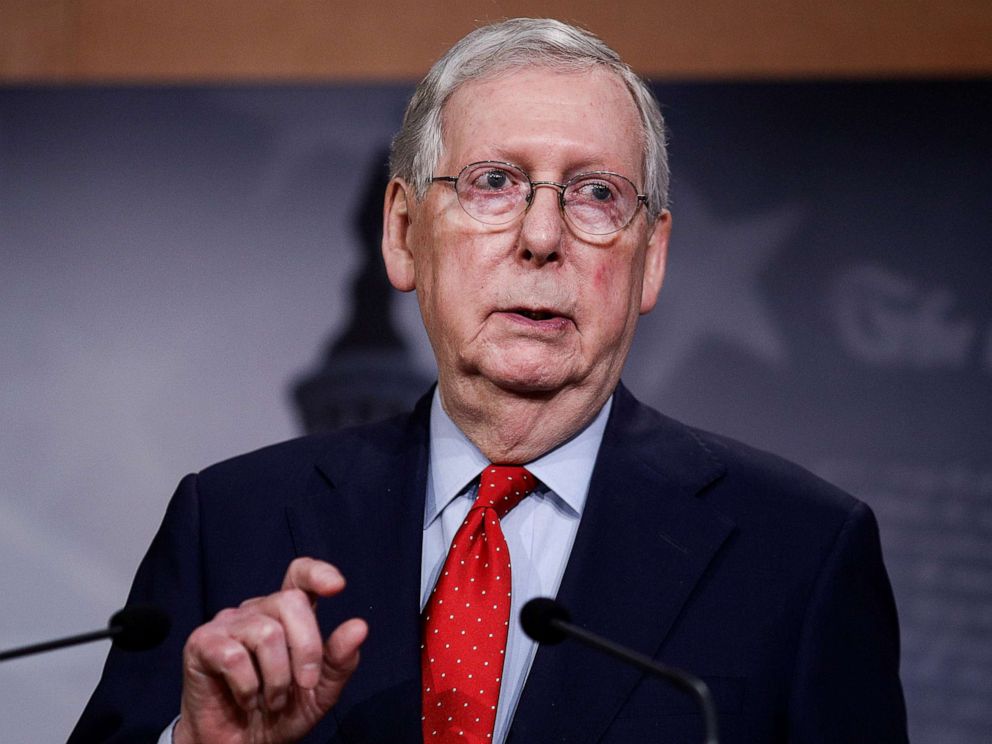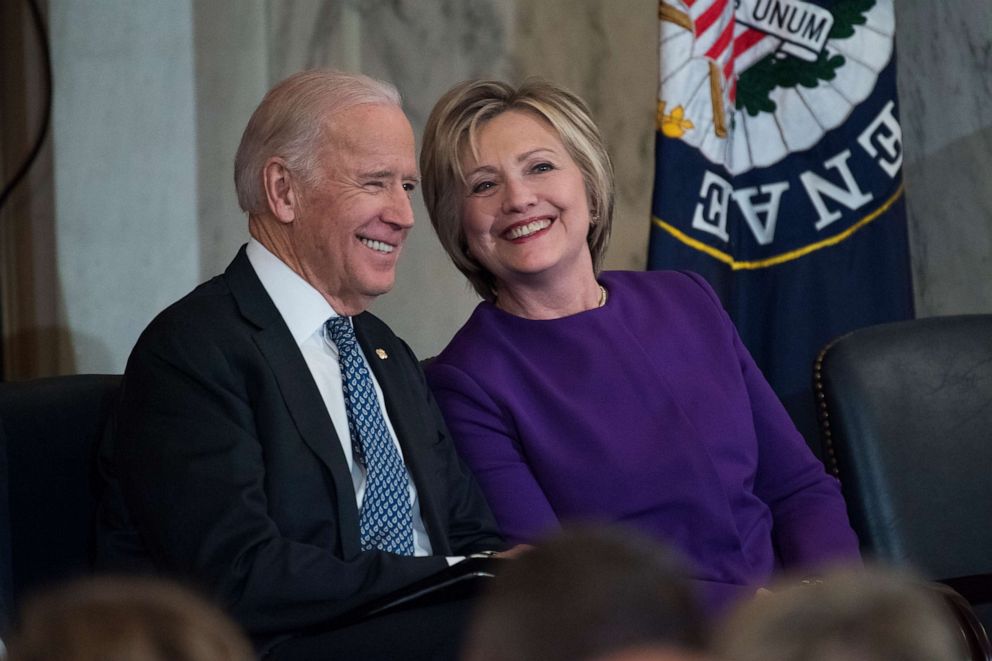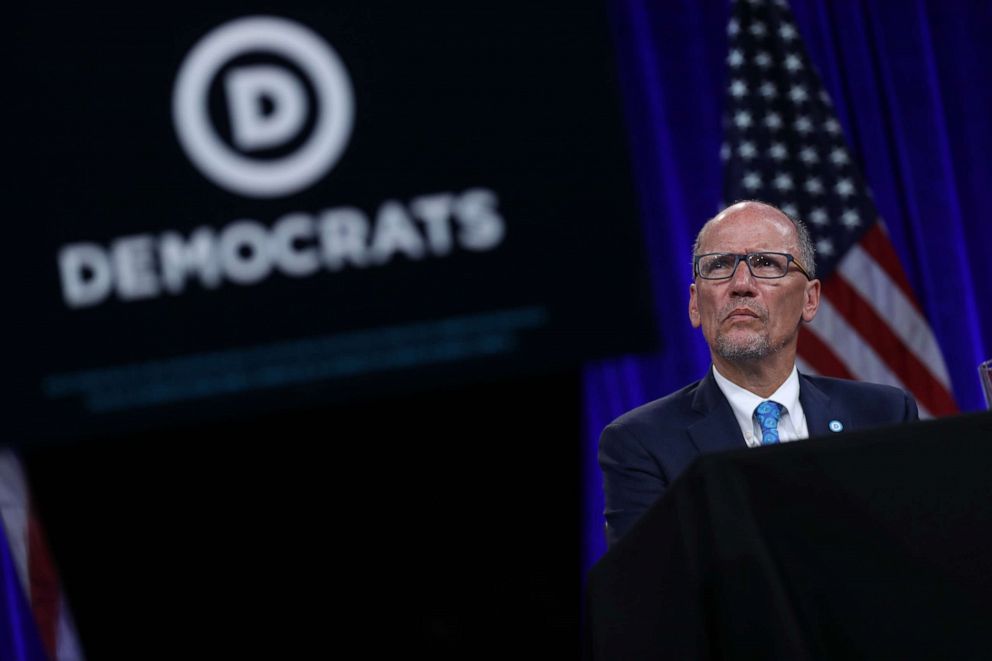The Note: GOP confronts ideological roadblocks in COVID-19 recovery
Some Republicans are signaling concerns about the deficit amid recovery efforts.
The TAKE with Rick Klein
The easy part is over. Approving record trillions to keep the economy afloat had a way of busting through party lines and past intra-party differences.
Now the money is being spent, with tensions over oversight and predictable bureaucratic delays. The next package -- whatever form it takes, and whenever it starts to come together -- is already running into divides that are red versus blue, and others that are colored more by red ink.
GOP senators are signaling concerns about the deficit, on top of concerns about anything seen as a “bailout” for Democratic-run states.

President Donald Trump is again touting a payroll tax cut as an alternative to another round of direct payments. He is also mulling whether to condition aid to state and local governments on what he is calling “sanctuary city adjustments,” on top of the immigration limits he announced last week.
The conflicting signals from the White House extend beyond face coverings and the president’s suggestion that House Democrats are on “vacation” in following the stay-at-home guidance of health officials in Washington, D.C.
The COVID-19 crisis is redefining the role of government -- and making it considerably bigger, under the leadership of a party that stands for smaller government. That tension comes through in the rallies calling for governors to reopen their states, with more such events -- rallied in part by tea party veterans -- coming this week.
Republicans and Democrats can of course agree on wanting the economy to recover -- and fast. But getting there will test party ideologies, particularly with a president whose governing style is far more personal than ideological.
The RUNDOWN with MaryAlice Parks
The video was clumsy at times -- another reminder that campaigning during a pandemic is not easy or normal. Traditionally, an endorsement from your party’s last nominee would be rolled out at a big event.
Still, former Vice President Joe Biden passed another milestone Tuesday with Hilary Clinton singing his praises and reminiscing about time they spent together.
“I also know a lot about Joe, the person. I've seen him up close and personal now for many years. We have a lot of the same values in common ... and we share a common experience and a love of Scranton, Pennsylvania,” Clinton said.

Her presence and visibility around Biden’s campaign this year runs the risk of being incredibly polarizing. Of course, she won the popular vote, but is still criticized by many on the left for losing to Trump and could alienate progressives -- a group Biden needs to come out in order to win.
Their live-stream together Tuesday was billed as a town hall, though meaningful audience engagement was lacking. The campaign pitched it as an event on “women’s issues” during the coronavirus, though at times that conversation felt a little dated and rather rehearsed.
Biden did tease the release of a plan to address the issue of domestic violence during the COVID-19 outbreak and made passing mention of new abortion restrictions in some states during this pandemic too. Still, the duo left on the table a more robust, potential conversation about gender roles and women in the workplace during this time of crisis.
The TIP with Kendall Karson
The pressure is on for the organizers behind the Democratic National Convention. On Tuesday, the Wisconsin Democratic Party announced it is shifting its state convention, set for June 12, to a 100% virtual format due to the coronavirus, putting planners for the national convention -- which is still expected to take place in Milwaukee during the week of August 17 -- in a precarious position.
Wisconsin isn't the first state to move to a virtual state convention, but it's perhaps one of the most significant given that it's hosting Democrats' quadrennial event to formally nominate Biden. And the announcement marks a departure from the national party's current planning, with Democratic National Committee chair Tom Perez saying just last week that they are still planning for an in-person convention this summer. The organizers behind the convention appear unmoved by the state party's decision, and deflected when asked if it changes their thinking at all.

"As we continue to put plans in place to deliver a convention in Milwaukee this summer that places our Democratic nominee on the path to victory in November, our team will remain in constant communication with the local, state and federal officials responsible for protecting public health and continue to follow their guidance," a spokesperson for the convention told ABC News.
On the Republican side, Charlotte, North Carolina, Mayor Vi Lyles, a Democrat, told ABC News Live on Tuesday that while the public's safety remains a priority, she hopes the host city for the convention can do both: "We'll follow the emergency declaration because safety of people and wellness of people is the first and foremost thing we have to deal with."
THE PLAYLIST
ABC News' "Start Here" Podcast. Wednesday morning’s episode features ABC News’ Matt Gutman and Anne Flaherty -- the two discuss President Donald Trump’s executive order directing food processing plants to remain open despite high COVID-19 risks. Then, ABC News’ Kaylee Hartung explains why antibody tests just became more accessible to the average person. And, a conversation with ABC News Chief Medical correspondent Dr. Jennifer Ashton about coronavirus and our pets.http://apple.co/2HPocUL
ABC News' "Powerhouse Politics" podcast. Former New Jersey Governor and ABC News Contributor Chris Christie joins ABC News Political Director Rick Klein and Chief White House Correspondent Jonathan Karl to talk about the government's response to the coronavirus pandemic and his recent Washington Post op-ed about five actions that need to be taken to restore the American way of life. https://bit.ly/2w091jE
WHAT YOU NEED TO KNOW TODAY
Download the ABC News app and select "The Note" as an item of interest to receive the day's sharpest political analysis.
The Note is a daily ABC News feature that highlights the day's top stories in politics. Please check back tomorrow for the latest.




